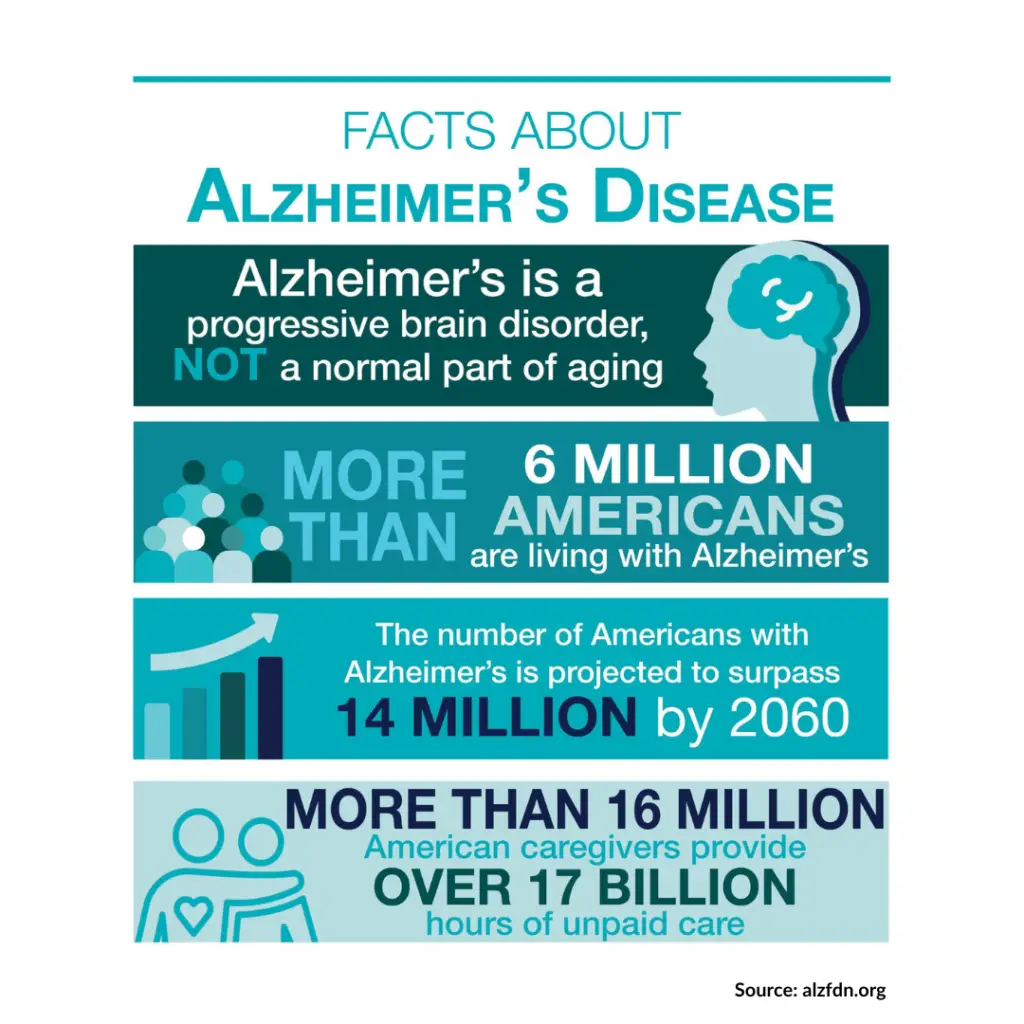Alzheimer’s disease is a devastating neurological disorder that affects millions of people worldwide. As the most common form of dementia, it gradually robs individuals of their memories, cognitive abilities, and independence. However, there is hope in the fight against Alzheimer’s through early detection and intervention.
To bring attention to Alzheimer’s Awareness Month, we will delve into the importance of Alzheimer’s awareness, as well as the crucial role that early detection plays in improving the lives of those affected by this disease and their loved ones.
Understanding Alzheimer’s Disease
Alzheimer’s disease is a progressive and irreversible brain disorder that primarily affects memory, thinking, and behavior. The hallmark of Alzheimer’s is the accumulation of abnormal protein deposits in the brain, including beta-amyloid plaques and tau tangles. Over time, these deposits lead to the death of brain cells and the characteristic cognitive decline associated with the disease.

Why Alzheimer’s Awareness Matters
Early Detection Increases Treatment Options- Early detection of Alzheimer’s disease is crucial because it allows individuals to explore various treatment options. While there is no cure for Alzheimer’s, several medications and interventions are available to slow down the progression of the disease and manage its symptoms. These treatments are most effective when started early in the disease’s course. By increasing awareness of Alzheimer’s, more individuals and their families can access these treatment options, potentially improving their quality of life.
Improved Care and Support- People living with Alzheimer’s often require a high level of care and support as their condition progresses. Raising awareness about Alzheimer’s helps communities and caregivers better understand the needs of those affected. With early detection, caregivers can plan and provide appropriate support, ensuring that individuals with Alzheimer’s can live as independently and comfortably as possible. (Support link)
Reduced Stigma- There is still a significant stigma associated with Alzheimer’s and dementia, leading many individuals to delay seeking a diagnosis. Raising awareness helps to reduce this stigma and encourages more people to come forward for evaluation. With a more open dialogue surrounding Alzheimer’s, individuals and their families are less likely to feel isolated and overwhelmed by the diagnosis.
The Importance of Early Detection
Maximizing Treatment Benefits- As mentioned earlier, early detection allows individuals to explore treatment options that can slow down the progression of the disease and manage symptoms. Medications like cholinesterase inhibitors and memantine have been shown to be more effective when started early. Non-pharmacological interventions, such as cognitive training and lifestyle modifications, are also more effective when initiated at the early stages of the disease.
Planning for the Future- Early detection empowers individuals and their families to plan for the future. This includes making financial, legal, and caregiving arrangements. Advance care planning allows individuals to express their preferences for medical care, ensuring that their wishes are respected throughout the course of the disease.
Participation in Clinical Trials- Clinical trials are crucial in the search for a cure or more effective treatments for Alzheimer’s. Early detection enables individuals to participate in clinical trials and contribute to scientific research. Their involvement can help researchers gain a better understanding of the disease and develop innovative therapies.
What Tests Are Done For Early Diagnosis?
Alzheimer’s awareness and early detection are essential components in the fight against this devastating disease. During Alzheimer’s Awareness month, there is no better time than now to take an assessment for early detection.
There are assessment tools available:
Online Testing with Neurox and LANGaware– Free, easy-to-use, and accurate online assessment using only your voice. After receiving your results from your free online assessment NeuroX provides the ability to schedule a telehealth visit and meet with a neurologist if necessary. https://www.neurox.us/langaware
Lab test like the one available from Quest– This screening test provides an amyloid ratio, which is a risk factor for Alzheimer’s disease. This ratio is based on two biomarkers that have been reported as helping to detect early signs associated with the risk of developing Alzheimer’s disease. This can potentially help you and your doctor design interventions and a management plan that is most beneficial to you.
Additionally, the Alzheimer’s Association lists several resources for medical testing.
By raising awareness together we can reduce stigma, encourage early diagnosis, and ensure that individuals and their families can access the best available treatments and support. This month to help bring awareness to Alzheimer’s Disease more than 800 structures around the world will “go teal” this year to raise awareness and show support for the millions of people affected by Alzheimer’s. If you have access to an office building, campus, monument, or even your house, you can be a part of “lighting the world in teal”! Sign up here to light the world in teal. You can still wear teal and update your social media cover photo to help raise awareness!






